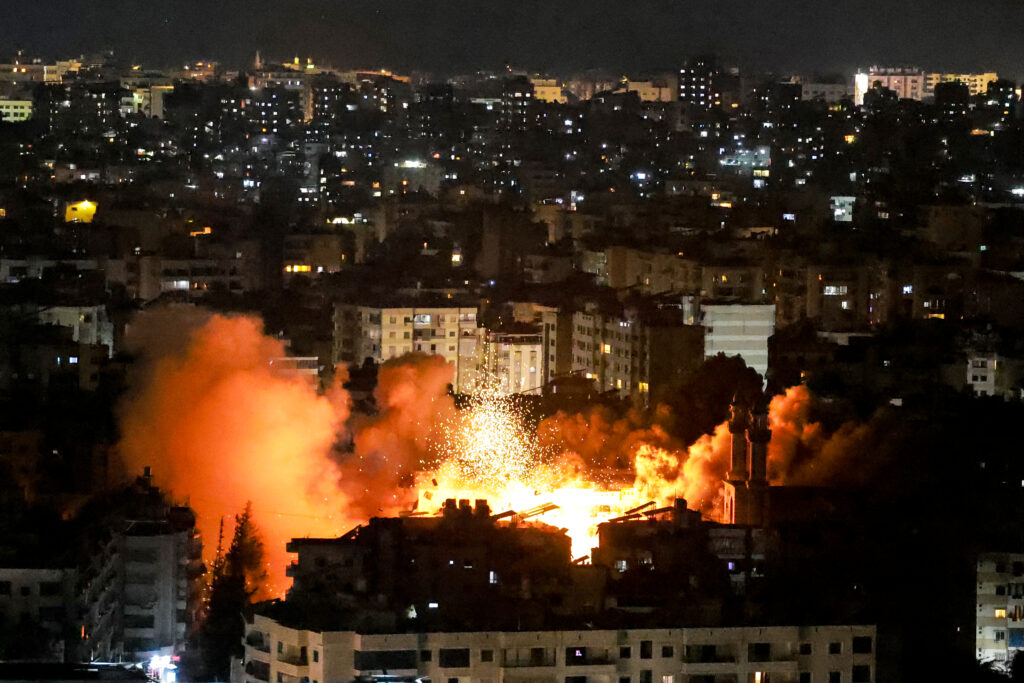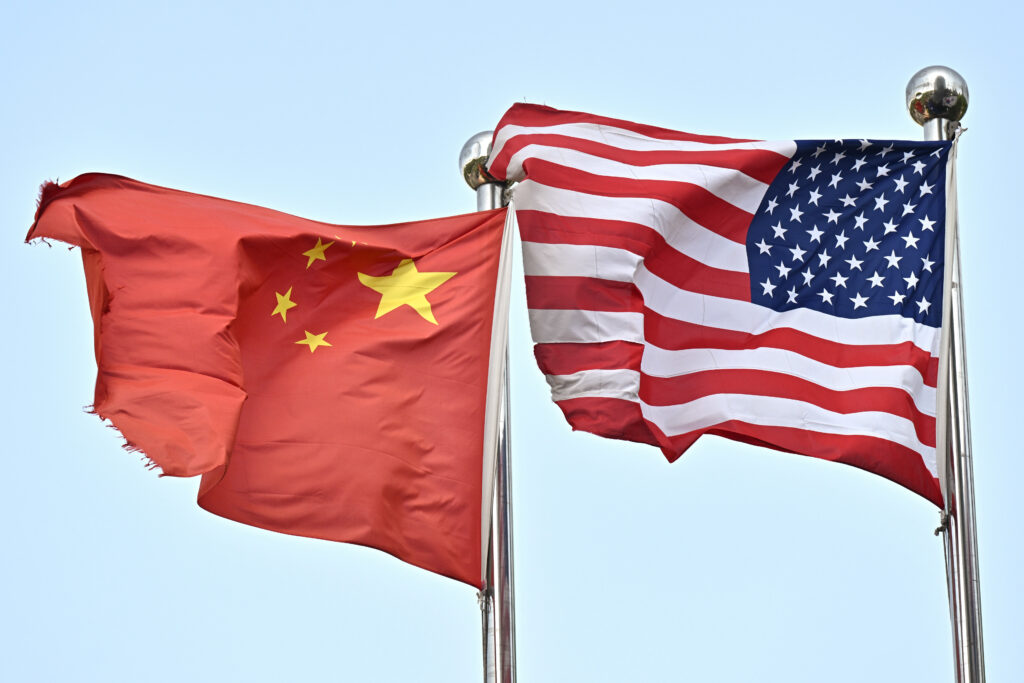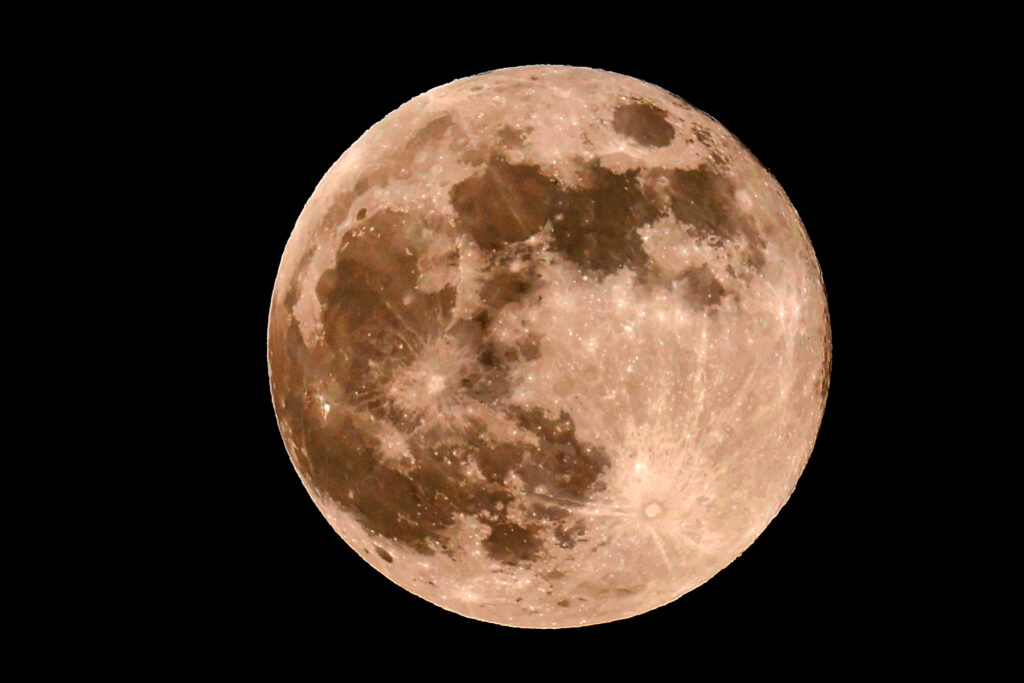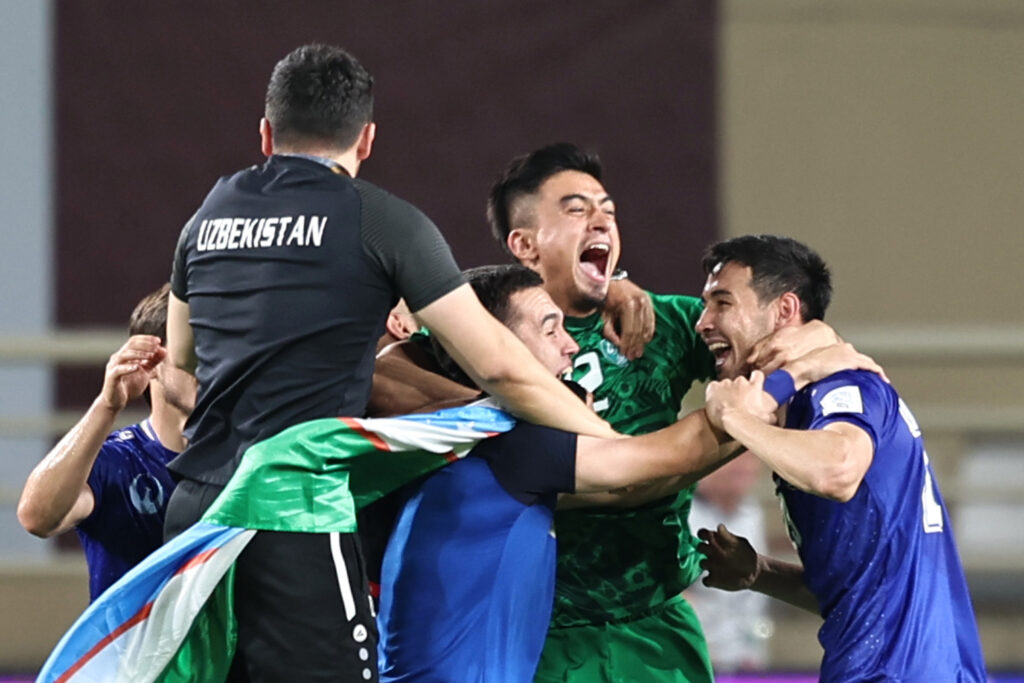AFP Asia Business
Israel says hits Beirut, targeting Hezbollah drone factories
A series of Israeli air strikes hit Beirut’s southern suburbs on Thursday night, after the military said it would target underground Hezbollah drone factories.Plumes of smoke were seen billowing from the Lebanese capital, shortly after huge numbers of people had fled the area, clogging the roads with traffic.Lebanese news agency ANI said it counted nearly a dozen strikes, including two which were “very violent”. AFP journalists in the city heard at least two strong detonations.”The IDF (military) is currently striking terror targets of the Hezbollah aerial unit,” the Israeli military said in a statement on Telegram.Less than two hours earlier, its Arabic-language spokesman Avichay Adraee had warned on social media that residents of the suburbs were “located near facilities belonging to the terrorist organisation Hezbollah” and should evacuate immediately.In a separate statement, the military had said it would “soon carry out a strike on underground UAV (drone) production infrastructure sites that were deliberately established in the heart of (the) civilian population” in Beirut.The United Nations Special Coordinator for Lebanon wrote on X that the strikes “generated renewed panic and fear”, and called for a “halt to any actions that could further undermine the cessation of hostilities”.”Established mechanisms and diplomatic instruments are at the disposal of all sides to address disputes or threats, and to prevent unnecessary and dangerous escalation,” it added. Lebanon’s President Joseph Aoun in a statement voiced “firm condemnation of the Israeli aggression” and “flagrant violation” of a November 27 ceasefire “on the eve of a sacred religious festival”, the Muslim holiday Eid al-Adha.He said the strikes were “irrefutable proof of the aggressor’s refusal… of a just peace in our region”.Prime Minister Nawaf Salam also issued a statement condemning the strikes as a “flagrant violation of Lebanese sovereignty” and of a 2006 UN resolution.- Suspected drone production -One resident described grabbing her children and fleeing her home in the southern suburbs after receiving an ominous warning before the strikes.”I got a phone call from a stranger who said he was from the Israeli army,” said the woman, Violette, who declined to give her last name.Israel also issued an evacuation warning for the village of Ain Qana, located in southern Lebanon around 20 kilometres (12 miles) from the Israeli border.The Israeli military then launched a strike on a building there that it alleged was a Hezbollah base, ANI reported.Israel and the Iranian-backed Hezbollah engaged in more than a year of hostilities that began with the outbreak of the Gaza war and culminated in an intense Israeli bombing campaign and ground incursion into southern Lebanon.The November ceasefire sought to end the fighting — which left Hezbollah severely weakened — but Israel has continued to regularly carry out strikes in Lebanon’s south.Strikes targeting Beirut’s southern suburbs, considered a Hezbollah stronghold, have been rare, however.”Following Hezbollah’s extensive use of UAVs as a central component of its terrorist attacks on the state of Israel, the terrorist organisation is operating to increase production of UAVs for the next war,” the military statement said, calling the activities “a blatant violation of the understandings between Israel and Lebanon”.Under the truce, Hezbollah fighters were to withdraw north of the Litani river, about 30 kilometres from the border, and dismantle their military posts to the south.Israel was to pull all its troops from Lebanon, but it has kept them in five positions it deems “strategic” along the frontier.The Lebanese army has been deploying in the south and removing Hezbollah infrastructure there, with prime minister Salam saying Thursday that it had dismantled “more than 500 military positions and arms depots” in the area.
Trump-Xi call fuels market optimism but US stocks slip on Musk row
Wall Street closed lower Thursday as a spat between President Donald Trump and his billionaire former aide Elon Musk spilled into the public eye, but global markets were mixed while investors assessed trade talks between Washington and Beijing.Major US indexes fell, with shares in Musk’s electric vehicle company Tesla tanking more than 14 percent as …
Trump-Xi call fuels market optimism but US stocks slip on Musk row Read More »
Japanese company loses contact with Moon lander
A Japanese company lost contact with its Moon lander Resilience during a daunting final descent, dealing a blow to its bid to make history two years after a prior mission ended in a crash.Tokyo-based ispace had hoped to become only the third private firm — and the first outside the United States — to achieve …
Uzbekistan seals footballing dream with World Cup qualification
Uzbekistan are heading to next year’s World Cup for the first time in the country’s history, a feat that caps years of progress in a part of the world not known for its footballing prowess.The Central Asian nation qualified for football’s premier international tournament on Thursday thanks to a 0-0 draw with the United Arab Emirates — enough to seal the achievement with one game to spare.”I cannot convey my feelings. I am very, very happy — for the first time in 34 years the Uzbekistan national team has reached the World Cup,” Otabek Khaydarov, a 36-year-old entrepreneur told AFP in Tashkent after the final whistle.Ex-Soviet Uzbekistan started competing as an independent nation in the 1990s, following the break-up of the USSR.Footage shared on social media showed the players, draped in national flags, mobbing coach Timur Kapadze in the press room after the game.The expansion of the tournament from 32 to 48 teams has given traditional outsiders, like Uzbekistan, the chance to break into the top ranks of world football.But their success is not just down to a larger World Cup. Uzbekistan is one of Asia’s fastest developing footballing nations.And across Central Asia, the sport is in the ascendancy — backed by state funding and growing popularity in a region where combat sports traditionally reign supreme.Ravshan Khaydarov, the coach of Uzbekistan’s under-23 national team, said qualification is the result of “a long-term effort”.”Presidential decrees adopted to reform football five or six years ago marked the beginning of a process that is still ongoing,” he told AFP on the sidelines of a match in Tashkent, ahead of the crunch game against UAE.The construction of new stadiums and training centres, sometimes with FIFA’s support, has been crucial, he said.- State affair -Such backing from the top is essential in a region dominated by autocratic regimes.In both Uzbekistan and neighbouring Kyrgyzstan, the national football federations are controlled by powerful secret service chiefs.On the pitch, Uzbekistan’s charge to the tournament — to be staged across the United States, Canada and Mexico — was led by the star trio of centre back Abdukodir Khusanov, striker Eldor Shomurodov and winger Abbosbek Fayzullaev.Khusanov, who moved to Manchester City in a reported $45-million deal earlier this year, has become a national hero at home.Bootleg jerseys featuring his name and number are available at bazaars across the landlocked country.Footballing bosses are confident the success of Khusanov and Shomurodov, who plays for Roma in Italy, can be replicated.More than a third of the country’s 35 million people are under the age of 20 — a huge talent pool waiting to be coached.”It is important to have a systemic approach to identifying talent and selecting the best players who will become famous. The world will know Uzbekistan thanks to our national team,” said coach Khaydarov.”Our dream is to see Uzbek players in the best European clubs.”- ‘Creativity’ – The country has already had glory at the youth level, recently winning the Asian U17 and U20 Cups and qualifying for the 2024 Paris Olympics.”The strength of Uzbek football lies in the combination of play, technique, passing and attacking,” said Azamat Abduraimov, a former player and now coach.”Uzbek football has always been renowned for its creativity. We have always had good strikers and creative, technical midfielders. But we lacked success because we were weak in defence,” he added. Centre-back Khusanov, who Abduraimov coached as a teenager, has helped address that balance.Many see 21-year-old winger Fayzullaev, who plays for CSKA Moscow and was voted Asia’s best young player in 2023, as the next Uzbek in line for a big money move to Europe.His playing style has been compared to star Georgian winger Khvicha Kvaratskhelia, who just won the Champions League with Paris Saint-Germain.For the national team, qualifying for next year’s World Cup brings a new set of challenges.Uzbekistan has never played an international match against a top European side, and most of its young talent still lack experience on the biggest stages.In Tashkent, supporter Otabek was relishing the step up.”I would like to have strong opponents at the World Cup, I know at that there will be no weak ones there.”




